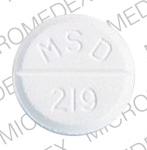Cortone Acetate Interactions
There are 637 drugs known to interact with Cortone Acetate (cortisone), along with 22 disease interactions, and 2 alcohol/food interactions. Of the total drug interactions, 90 are major, 510 are moderate, and 37 are minor.
- View all 637 medications that may interact with Cortone Acetate
- View Cortone Acetate alcohol/food interactions (2)
- View Cortone Acetate disease interactions (22)
Most frequently checked interactions
View interaction reports for Cortone Acetate (cortisone) and the medicines listed below.
- Adderall (amphetamine / dextroamphetamine)
- Advil Liqui-Gels (ibuprofen)
- albuterol
- Aleve (naproxen)
- Ambien (zolpidem)
- amlodipine
- Ativan (lorazepam)
- Augmentin (amoxicillin / clavulanate)
- azathioprine
- azelastine nasal
- B Complex 100 (multivitamin)
- Bactrim (sulfamethoxazole / trimethoprim)
- Bevespi Aerosphere (formoterol / glycopyrrolate)
- Butrans (buprenorphine)
- calcium / vitamin d
- cannabis
- carbamazepine
- Celexa (citalopram)
- CellCept (mycophenolate mofetil)
- cephalexin
- clobetasol topical
- clonazepam
- clonidine
- clopidogrel
- clotrimazole
- clotrimazole topical
- colchicine
- Dilaudid (hydromorphone)
- Humalog KwikPen (insulin lispro)
- NPH Insulin (insulin isophane)
Cortone Acetate alcohol/food interactions
There are 2 alcohol/food interactions with Cortone Acetate (cortisone).
Cortone Acetate disease interactions
There are 22 disease interactions with Cortone Acetate (cortisone) which include:
- infections
- (+) tuberculin test
- cirrhosis
- depression/psychoses
- diabetes
- electrolyte imbalance
- fluid retention
- GI perforation
- hyperadrenocorticalism
- hyperlipidemia
- hypothyroidism
- liver disease
- MI
- myasthenia gravis
- myopathy
- ocular herpes simplex
- ocular toxicities
- osteoporosis
- PUD
- scleroderma
- strongyloidiasis
- thromboembolism
More about Cortone Acetate (cortisone)
- Compare alternatives
- Reviews (1)
- Drug images
- Side effects
- Dosage information
- During pregnancy
- Drug class: glucocorticoids
- Breastfeeding
Related treatment guides
Drug Interaction Classification
| Highly clinically significant. Avoid combinations; the risk of the interaction outweighs the benefit. | |
| Moderately clinically significant. Usually avoid combinations; use it only under special circumstances. | |
| Minimally clinically significant. Minimize risk; assess risk and consider an alternative drug, take steps to circumvent the interaction risk and/or institute a monitoring plan. | |
| No interaction information available. |
See also:
Further information
Always consult your healthcare provider to ensure the information displayed on this page applies to your personal circumstances.


